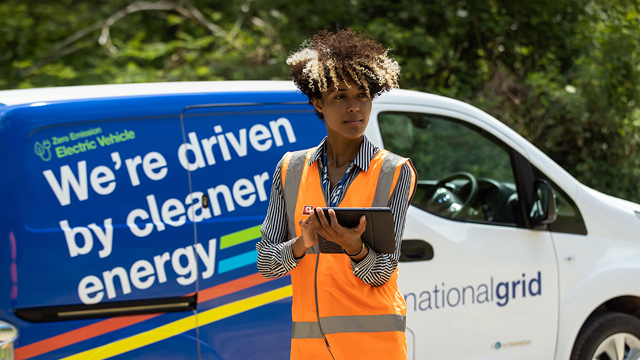
Acting responsibly to make a positive impact
Now more than ever, business needs to stand for something beyond profit. So we’re launching our Responsible Business Charter, with a range of clear commitments and targets covering carbon emission levels, employee volunteering hours, diversity and more.
Society’s expectations of businesses and the role they play in the world are changing. We also believe that companies need to stand for something more than profitability. Now, more than ever, we have a responsibility to demonstrate our contribution to society in broader ways.
For us, acting as a responsible business means helping young people to gain the skills they need to become the problem solvers of tomorrow, tackling climate change, working to reduce our own emissions and supporting our customers to use energy more efficiently.
To ensure we make a positive impact on society and our communities, we’ve launched our new Responsible Business Charter, providing a range of clear commitments and targets. The charter looks at five areas of focus through the lens of responsible business, these are: the environment, the communities we serve, our people, the economy and our governance. For each one, we’ve set commitments, specific targets and outlines of how these will be achieved.
More ambitious emissions targets
We’ve achieved a lot so far; since 1990, we’ve reduced our direct (Scope 1 and 2) emissions by 70% (as at March 2020). That’s well in excess of our interim target, which was 45% by 2020.
But we know that there’s much more we can do, so we’re setting ourselves a more ambitious aim of reducing Scope 3 greenhouse gas emissions for the electricity and gas we sell to our customers by 20% by 2030 and eliminating all sulphur hexafluoride (SF6) gas from our assets by 2050. We’re also going to continue investing approximately £5bn in energy infrastructure each year.
Developing a diverse and skilled workforce
The People section of the charter includes addressing how we’ll develop skills for the future, focusing on lower-income communities by providing access to skills development for 45,000 people by 2030.
We recognise that a diverse workforce is crucial and we’re looking to achieve 50% diversity at board and senior level, and within all of our new talent programmes, by 2025. This involves diversity of gender and ethnicity, with equality for all employees in the way they’re hired, promoted, developed, paid and retained at the same rate.
Our employees, meanwhile, have long been encouraged to assist the communities we live and work in and, by 2030, we’re aiming for them to have contributed half a million hours of volunteering.
A carbon footprint travelling in the right direction
As an international business, we’re seeking to reduce our annual air miles by at least 50% from a 2019 baseline and we’ll offset any remaining emissions. Back on the ground, we’re switching to a 100% electric fleet by 2030 for our light-duty vehicles and we’re working to replace our medium- and heavy-duty vehicles with zero carbon alternatives.
A key part of bringing responsibility into everything we do is making sure that our charter is not a piece of paper to put on the wall and be forgotten. To protect against this, we are publishing the charter and expect to be held accountable as these are real targets and commitments, which we’ll be reporting against annually.


